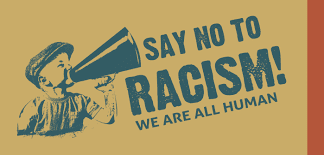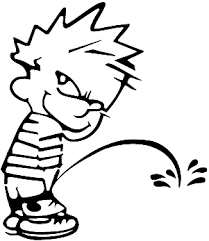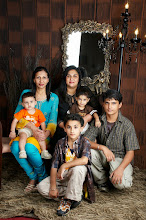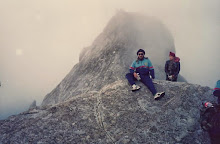By Sundeep Misra
— The author has written on hockey for over 20 years. His fiction based on hockey. Blood on the Turf is releasing in October.
Sports minister Ajay Maken has missed the opportunity of a lifetime. Provided, he thinks it was a miss. In one shot, he had the advantage with no goalkeeper in sight to score the match-winner.
But like a typical Indian striker with jelly hands and trembling wrists, he shot out and settled for a draw. Never before had any sports minister sat with a sawed off shot gun; Hockey India (HI) and the Indian Hockey Federation (IHF) in his cross hairs.
It was a moment that should have been seized by Maken to clean Indian hockey once and for all. Everybody was on the table, Hockey India’s Narendra Batra whose only role seems to be passing the buck, RK Shetty, president of IHF, who believes KPS Gill has the divine right to rule hockey and KPS Gill, who still believes hockey is a sultanate and he has acquired life-time rights.
Maken could have easily twisted them around and forced them to walk on purely one path — the growth and professionalism of Indian hockey.
That moment has passed. In the merger of HI and IHF, it is Indian sports’ biggest fraud committed. One body was formed (it still needs to be registered) but everything being done on a parallel level and in duplicates. The saving grace was they agreed on one national team at least.
The big or small question (as you want to look at it) is whether anybodyis looking at the future of the sport. Grass roots hockey is diminishing faster than the water table in Himachal Pradesh.
Sub-junior hockey is dead while junior hockey is in a comatose stage. The seniors are fighting over crumbs while the officials are engaged in a fire-fight to sell the game to the highest bidder.
The silver lining is a few people still believe that the sport can be sold and made it into the nation’s No 2 sport after cricket. But Batra, Shetty and Gill, like zillions of sports officials have no clue about the sport.
Gill was voted to power in 1994. We were still good then and to the credit of Gill, he did raise the profile. A few years later, he fell victim to what is a disease in Indian sport officialdom — the president of the IHF thought he was bigger than the sport.
Gill took decisions that professionals take when it comes to coaching and selections. He hired and fired coaches as if they were his personal property. Result — hockey slid faster than a falling comet. India for the first time failed to qualify for the Beijing Olympics. Gill, finally, had managed to create history.
Now the same man wants the reins back.
The International Hockey Federation (FIH) is a visionless organisation. Happy at being confined to the Olympics and living of grants, the FIH has done nothing to raise the profile and make the sport professional.
The Europeans rule it and are happy with their disgustingly boring tea parties. Europe needs to rule while the FIH has understood, though late, that without India, there is no money in hockey. So this massive PR exercise with India by gifting tournaments to us.
With FIH ruling out the merger and now threatening to pull out the tournaments including the Olympic Qualifiers, Indian hockey is at the crossroads.
Maken, in so many ways, has a second chance. He can call in the warring chiefs — read out the riot act and discipline them. Bring them under one body and merge the officials.
At the end of the day, whether you work for HI, IHF or Bharatiya Hockey (proposed name for the new body), you are anyway working for hockey. It is the designation that should be important to the Batra’s, Shetty’s and the Gills.
Holding the World Series Hockey will always be a point of attrition unless the FIH agrees to it. An easier thing would be to rename it into the Indian Hockey League and hold the tournament under one body. In essence, it becomes an Indian league with foreign players.
In his answer to the Lok Sabha on FIH not recognising the joint bodies, Maken said, “FIH has expressed concern over the proposed settlement stating that it would go against their statute, which provides for a sole national governing body in each member country. The entire matter is under consideration.”
With around six months left for the Olympic Qualifiers, we are still fighting over rusted office chairs and a sport which is on life-support. Ironically, by the very people who want to cut, dice and share the spoils even now.
Even the sports ministry’s very visionary step of appointing Australian Michael Nobbs as coach for five years is in danger.
IHF president RK Shetty said after the merger that they didn’t have a problem with Nobbs as he has appointed by the sports ministry. But he did throw in a hint by saying, “We would also like Joaquim Carvalho to be a part of the coaching process.”
Carvalho who played in the 1986 World Cup team where India finished last was also the coach when India failed to qualify for the Beijing Olympics.
Indian hockey does need a strong-arm ruler; someone who understands the sport and its future. Chairman of the technical committee and a former captain, Pargat Singh, believes hockey needs to progress beyond the state politics.
“It doesn’t matter who comes,” he says. “He needs to understand the sport and its future. Hockey has been battered enough.”
Like always, Indian hockey will find a middle path and sign off with the FIH. The Olympic Qualifiers have to be held in India if we are to qualify.
It would also do well for Gill, Shetty and Batra to concentrate on the Olympic Qualifiers rather than who will occupy which chair.
Priorities are to be chalked out. Otherwise, in six to seven months time, we will have a repeat of the Chile Olympic Qualifiers. Once out of the Olympics for the second consecutive time, Gill, Batra and Shetty will really not have a sport left to fight over.
DNA
Saturday, August 6, 2011
Test of faith..
NATIONAL chief coach Tai Beng Hai will test his players endurance during the fasting month, as the London Olympics will also be held during the fasting period.
A Five-Test series against Japan will start from today at the National Stadium in Bukit Jalil, where the coach and officials from the National Sports Institute (NSI) will get a chance to gauge the energy level of London 2012 hopefuls.
“Our matches against Japan have always been close, with the last encounter ending in a 2-2 draw (2008 Olympics Qualifier) and so I believe playing against Japan is a good option to test several players who have shown improvements in the last few months.
“Also, since the London Olympics will be held during the fasting month, the NSI officials will also conduct several tests to see the energy level of players before and during the fasting month so that we will be ready to face the challenges,” said Beng Hai.
Malaysia will play in one of the three Olympic Qualifiers next year, after they lost 2-0 to Pakistan in the final of the Asian Games.
And Malaysia’s group will only be decided after the Oceania Cup on Oct 5-9 which involves Australia, New Zealand and Fiji.
The Oceania Cup offers two tickets each for the men and women’s tournament and Australia and New Zealand are the sure bets in this lop-sided Qualifier.
But each of the Qualifiers only offer one ticket to London, and Malaysia will be walking on thin ice at the host venue, which could be either in Japan, India or Belgium.
“These friendlies against Japan, and then the Asian Champions Trophy are great run-ups to achieve targets set for the Champions Challenge and also the Olympic Qualifier.
“I will be testing players, as well as other conditions during the Japan friendlies and so if we do not achieve results in the matches, there is no reason to push the panic button.
“The end target is to do well in the Champions Challenge and then qualify for the Olympics,” said Beng Hai.
Today’s match will be held at 8.45pm, after the players break fast, while on Monday the match is slated at 6.50pm to gauge how the players perform at the tail end of their fasting day.
A Five-Test series against Japan will start from today at the National Stadium in Bukit Jalil, where the coach and officials from the National Sports Institute (NSI) will get a chance to gauge the energy level of London 2012 hopefuls.
“Our matches against Japan have always been close, with the last encounter ending in a 2-2 draw (2008 Olympics Qualifier) and so I believe playing against Japan is a good option to test several players who have shown improvements in the last few months.
“Also, since the London Olympics will be held during the fasting month, the NSI officials will also conduct several tests to see the energy level of players before and during the fasting month so that we will be ready to face the challenges,” said Beng Hai.
Malaysia will play in one of the three Olympic Qualifiers next year, after they lost 2-0 to Pakistan in the final of the Asian Games.
And Malaysia’s group will only be decided after the Oceania Cup on Oct 5-9 which involves Australia, New Zealand and Fiji.
The Oceania Cup offers two tickets each for the men and women’s tournament and Australia and New Zealand are the sure bets in this lop-sided Qualifier.
But each of the Qualifiers only offer one ticket to London, and Malaysia will be walking on thin ice at the host venue, which could be either in Japan, India or Belgium.
“These friendlies against Japan, and then the Asian Champions Trophy are great run-ups to achieve targets set for the Champions Challenge and also the Olympic Qualifier.
“I will be testing players, as well as other conditions during the Japan friendlies and so if we do not achieve results in the matches, there is no reason to push the panic button.
“The end target is to do well in the Champions Challenge and then qualify for the Olympics,” said Beng Hai.
Today’s match will be held at 8.45pm, after the players break fast, while on Monday the match is slated at 6.50pm to gauge how the players perform at the tail end of their fasting day.
Subscribe to:
Posts (Atom)





